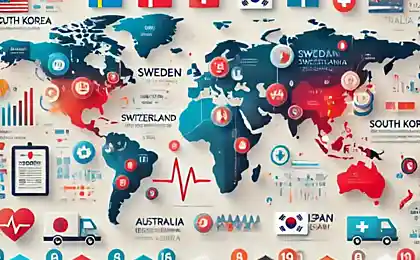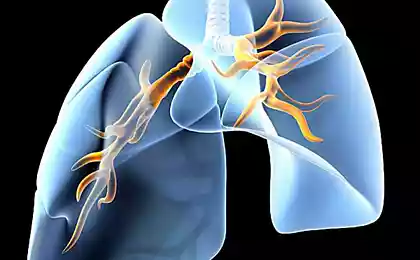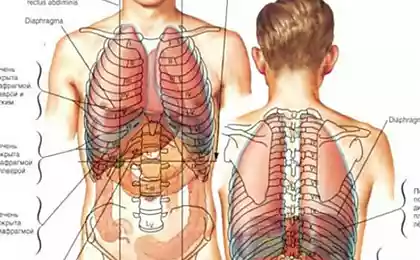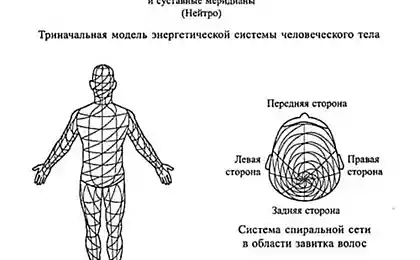580
Five facts about the world postantibioticski
Remember the clichés of horror movies: the good guy is doing everything possible to kill the bad guy but the bad guy, no matter what, continues to do their bad deal. In the end, the hero gets the last hit and the villain dies.
Health is a lot like these horror movies. Doctors are fighting with the villains — say, a bacteria — using all available instruments — in our case, antibiotics. Bacteria fight for life, while antibiotics do not win. Bacteria infection and die and we stay alive. Cheers to modern medicine!
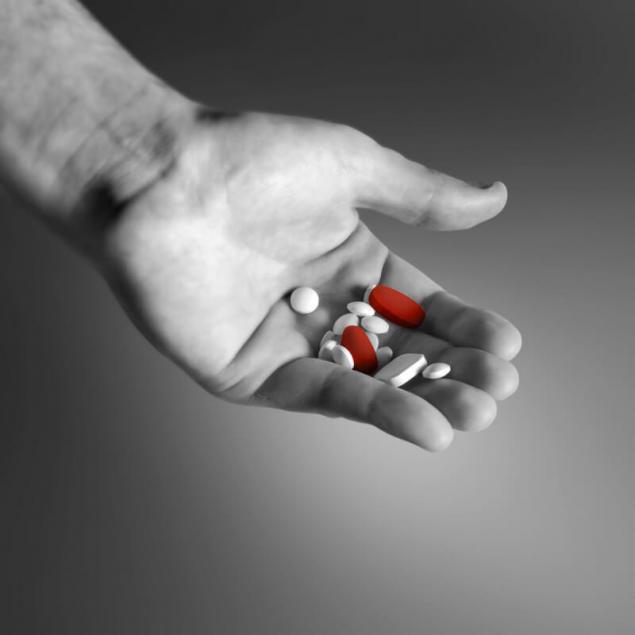
But did you know that in this film there is a sequel, the sequel, Shapochka, the moment when the villain not really dead? In the world of health, we gradually move to the same scenario. The bacteria that infect us, turning into superbugs, impervious to all known antibiotics. Health leaders around the world warn that many bacteria are becoming resistant to the antibiotics that we used yesterday to combat them, what motivates us to postantibioticski world, where bacteria can win.
How it will look in such a world?
The bad guys (bacteria) winBacteria is a perfect example of evolution in action. Like other organisms, bacteria just want to live, so over time they will adapt to the environment. Among the bacteria that cause specific diseases, there may be certain genetic differences. When exposed to antibiotics, these differences can cause specific bacteria can become less susceptible to the drugs. The more susceptible bacteria die first, and tenacious will remain, creating an even more powerful generation of bacteria resistant to antibiotics. This is repeated many times, causing bacteria to evolve and eventually to circumvent all the obstacles caused by exposure to antibiotics. Thus, although individual treatment with antibiotics can kill certain bacteria today, tomorrow they evolyutsioniruet, and the treatment will be useless. Otherwise, we would have won and would have found a panacea against bacteria once and for all.
The most common superbugs, which you may have heard, is a type of staph infection, methicillin-resistant Staphylococcus aureus (MRSA). Not yet developed new therapies, this strain of staph can be difficult to treat for decades. Followed by followed by bacteria living in the gut, like Escherichia coli and Klebsiella, as well as causing gonorrhea. Of the last dreadful examples of treatment-resistant tuberculosis. Superbugs like these evolyutsioniruet so fast that force us to reconsider our approach to the treatment of infections.
Costs for treatment are risingAntibiotics offer a quick solution to many problems. They quickly get people on foot, help to avoid surgery, they even help during the operation. But when antibiotics fail to fulfill their obligations in full, what happens to the health care systems in developed countries?
The number of superbugs is growing steadily. In parallel, the number of new antibiotics approved for use, is falling, mainly due to the small profits of the pharmaceutical companies related to the investment in the development of new antibiotics.
The goal of the health systems will be a fundamental change in this state, the allocation of funds to fight infections and reduce funds for another. In a sense, superbugs can actually reduce costs. People will not have to contact the surgeons do not need to go to transplant, and if to look truth in the eye, people will die early because to treat people at age 80-90 years will be extremely difficult.
However, the cost of treatment of infections in total will grow. When it turns out that antibiotics have lost efficiency, we turn to other possibilities: for example, the use of intravenous antibiotics that will be more expensive, especially for such trivial illnesses as ear infections.
Bacteriophages can helpWell, superbugs are winning, and we can't use antibiotics. What's next? One option is the development of new and powerful antibiotics. Unfortunately, more powerful antibiotics in the end will cause more harm to the body, attacking not only the bacteria.
If not antibiotics, then what? Scientists decided to apply to viruses, which can kill bacteria. These special viruses, called bacteriophages, specifically infect bacteria. After that phages use their own internal environment for bacteria breeding, until she burst like a balloon. Advantage of this therapy is that the viruses evolyutsioniruet simultaneously with the bacteria, which makes problematic the development of resistance to bacteriophages. Another feature is that the bacteriophages are very picky. They can attack a certain type of bacteria, killing them and leaving the rest to live, including beneficial bacteria, for example.
In addition to this, treatment can be based only on the enzymes of bacteriophages, not whole viruses. Bacteriophages produce enzymes, lysine, which can eat away the cell wall bacteria, while it will not open and will not collapse, reducing infection.
The idea of using viruses to combat bacteria was born long before Alexander Fleming discovered penicillin, paving the way in the era of antibiotics. Now that all goes to the fact that this era ends, we can re-contact the virus with the assistance.
Bacteriocin and peptidesWhen someone picks up an infection, the first thought is: "We need to kill the bacteria. However, it may be this: "Let's add some bacteria?". This may be a viable alternative to antibiotics. Some bacteria produce antimicrobial toxins — bacteriocins, and they can even be used to kill other bacteria, especially under conditions of food shortage. Because in the world of bacteria, the principle of "every man for himself" in order to survive, the bacteria attack the bacteriocins even relatively related species that cause the infection. The bad bacteria are killed, the infection goes away, people happy.
Another promising alternative therapy that may be Central to postantibioticski the world, is the use of cationic or antimicrobial peptides. Peptides are mini-proteins, antimicrobial they can both smash the accumulation of bacteria, disrupting the communication between the organisms and kill them. They can also stimulate our own immune system to fight infection.
Help our immune system can be a key component in the fight against infection in the future. In addition to using cationic peptides that trigger our immune system, scientists are experimenting with using human antibodies to identify invading bacteria in the site of infection and signal the immune system to find and destroy." Clinical studies of this therapy show promising results.
Best practices now and in postantibioticski the world, along with rapid movement to postantibioticski the world, there are a few things we can do right now to slow down our arrival to this disastrous episode.
First, we need to maintain our basic service. Rest, drink water, exercise to stay healthy will make us less susceptible to infection. We need to do this right now, but certainly not to limit our fight against bacteria.
Finally, some changes are necessary in our attitude to antibiotics. Many bacteria have developed resistance to several antibiotics. To minimize our contribution to this process, you need to be careful how we take antibiotics. To give our body the chance to fight the infection before you start taking the pill, is a good start. If we don't push the bacteria with antibiotics, they will not be able to develop resistance to them. Often our bodies do an excellent job themselves, destroying the infection without outside assistance. Finally, it is very important to finish the course of antibiotics to finish. If you stop too early, when it became easier, will definitely be few bacteria that will wait can become resistant to the antibiotic and once again flourish. Need to nip this in the Bud before we have a chance. published
P. S. And remember, only by changing their consumption — together we change the world! ©
Join us in Facebook and in Vkontakte, and we're Classmates
Source: hi-news.ru
Health is a lot like these horror movies. Doctors are fighting with the villains — say, a bacteria — using all available instruments — in our case, antibiotics. Bacteria fight for life, while antibiotics do not win. Bacteria infection and die and we stay alive. Cheers to modern medicine!

But did you know that in this film there is a sequel, the sequel, Shapochka, the moment when the villain not really dead? In the world of health, we gradually move to the same scenario. The bacteria that infect us, turning into superbugs, impervious to all known antibiotics. Health leaders around the world warn that many bacteria are becoming resistant to the antibiotics that we used yesterday to combat them, what motivates us to postantibioticski world, where bacteria can win.
How it will look in such a world?
The bad guys (bacteria) winBacteria is a perfect example of evolution in action. Like other organisms, bacteria just want to live, so over time they will adapt to the environment. Among the bacteria that cause specific diseases, there may be certain genetic differences. When exposed to antibiotics, these differences can cause specific bacteria can become less susceptible to the drugs. The more susceptible bacteria die first, and tenacious will remain, creating an even more powerful generation of bacteria resistant to antibiotics. This is repeated many times, causing bacteria to evolve and eventually to circumvent all the obstacles caused by exposure to antibiotics. Thus, although individual treatment with antibiotics can kill certain bacteria today, tomorrow they evolyutsioniruet, and the treatment will be useless. Otherwise, we would have won and would have found a panacea against bacteria once and for all.
The most common superbugs, which you may have heard, is a type of staph infection, methicillin-resistant Staphylococcus aureus (MRSA). Not yet developed new therapies, this strain of staph can be difficult to treat for decades. Followed by followed by bacteria living in the gut, like Escherichia coli and Klebsiella, as well as causing gonorrhea. Of the last dreadful examples of treatment-resistant tuberculosis. Superbugs like these evolyutsioniruet so fast that force us to reconsider our approach to the treatment of infections.
Costs for treatment are risingAntibiotics offer a quick solution to many problems. They quickly get people on foot, help to avoid surgery, they even help during the operation. But when antibiotics fail to fulfill their obligations in full, what happens to the health care systems in developed countries?
The number of superbugs is growing steadily. In parallel, the number of new antibiotics approved for use, is falling, mainly due to the small profits of the pharmaceutical companies related to the investment in the development of new antibiotics.
The goal of the health systems will be a fundamental change in this state, the allocation of funds to fight infections and reduce funds for another. In a sense, superbugs can actually reduce costs. People will not have to contact the surgeons do not need to go to transplant, and if to look truth in the eye, people will die early because to treat people at age 80-90 years will be extremely difficult.
However, the cost of treatment of infections in total will grow. When it turns out that antibiotics have lost efficiency, we turn to other possibilities: for example, the use of intravenous antibiotics that will be more expensive, especially for such trivial illnesses as ear infections.
Bacteriophages can helpWell, superbugs are winning, and we can't use antibiotics. What's next? One option is the development of new and powerful antibiotics. Unfortunately, more powerful antibiotics in the end will cause more harm to the body, attacking not only the bacteria.
If not antibiotics, then what? Scientists decided to apply to viruses, which can kill bacteria. These special viruses, called bacteriophages, specifically infect bacteria. After that phages use their own internal environment for bacteria breeding, until she burst like a balloon. Advantage of this therapy is that the viruses evolyutsioniruet simultaneously with the bacteria, which makes problematic the development of resistance to bacteriophages. Another feature is that the bacteriophages are very picky. They can attack a certain type of bacteria, killing them and leaving the rest to live, including beneficial bacteria, for example.
In addition to this, treatment can be based only on the enzymes of bacteriophages, not whole viruses. Bacteriophages produce enzymes, lysine, which can eat away the cell wall bacteria, while it will not open and will not collapse, reducing infection.
The idea of using viruses to combat bacteria was born long before Alexander Fleming discovered penicillin, paving the way in the era of antibiotics. Now that all goes to the fact that this era ends, we can re-contact the virus with the assistance.
Bacteriocin and peptidesWhen someone picks up an infection, the first thought is: "We need to kill the bacteria. However, it may be this: "Let's add some bacteria?". This may be a viable alternative to antibiotics. Some bacteria produce antimicrobial toxins — bacteriocins, and they can even be used to kill other bacteria, especially under conditions of food shortage. Because in the world of bacteria, the principle of "every man for himself" in order to survive, the bacteria attack the bacteriocins even relatively related species that cause the infection. The bad bacteria are killed, the infection goes away, people happy.
Another promising alternative therapy that may be Central to postantibioticski the world, is the use of cationic or antimicrobial peptides. Peptides are mini-proteins, antimicrobial they can both smash the accumulation of bacteria, disrupting the communication between the organisms and kill them. They can also stimulate our own immune system to fight infection.
Help our immune system can be a key component in the fight against infection in the future. In addition to using cationic peptides that trigger our immune system, scientists are experimenting with using human antibodies to identify invading bacteria in the site of infection and signal the immune system to find and destroy." Clinical studies of this therapy show promising results.
Best practices now and in postantibioticski the world, along with rapid movement to postantibioticski the world, there are a few things we can do right now to slow down our arrival to this disastrous episode.
First, we need to maintain our basic service. Rest, drink water, exercise to stay healthy will make us less susceptible to infection. We need to do this right now, but certainly not to limit our fight against bacteria.
Finally, some changes are necessary in our attitude to antibiotics. Many bacteria have developed resistance to several antibiotics. To minimize our contribution to this process, you need to be careful how we take antibiotics. To give our body the chance to fight the infection before you start taking the pill, is a good start. If we don't push the bacteria with antibiotics, they will not be able to develop resistance to them. Often our bodies do an excellent job themselves, destroying the infection without outside assistance. Finally, it is very important to finish the course of antibiotics to finish. If you stop too early, when it became easier, will definitely be few bacteria that will wait can become resistant to the antibiotic and once again flourish. Need to nip this in the Bud before we have a chance. published
P. S. And remember, only by changing their consumption — together we change the world! ©
Join us in Facebook and in Vkontakte, and we're Classmates
Source: hi-news.ru
Care of raspberries in the autumn: autumn crop, tillage and fertilizing
Rejuvenating facial masks from potatoes

